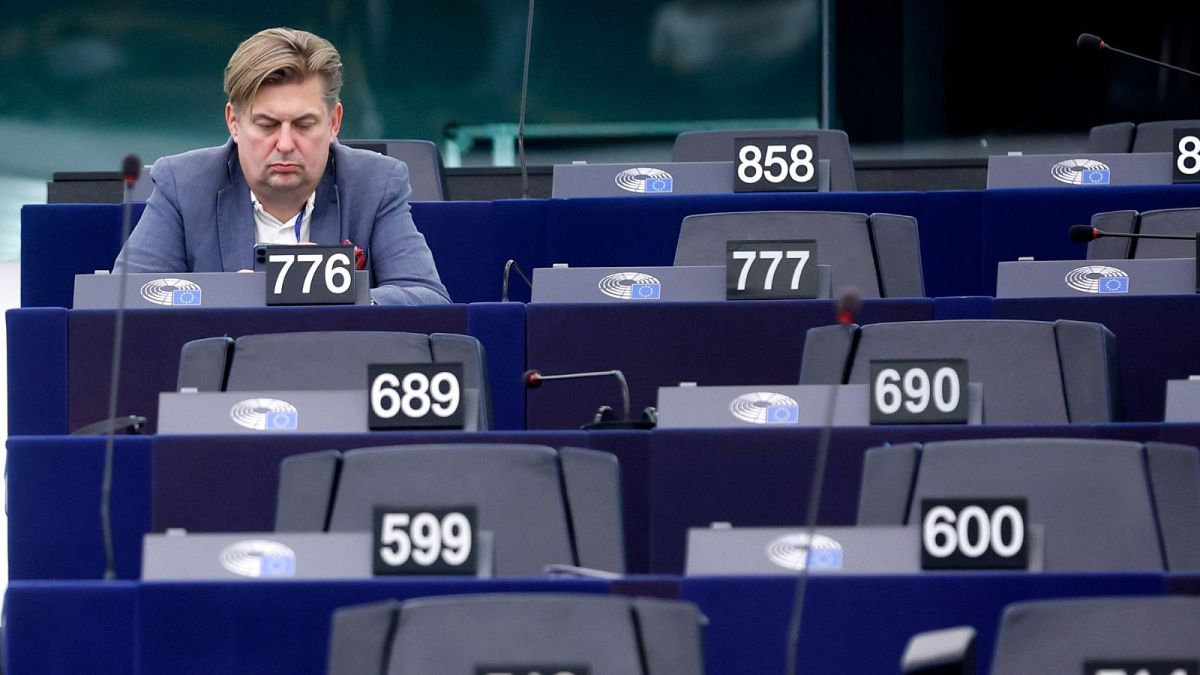There are 32 non-attached MEPs in the European Parliament who don’t belong to any political group. Being independent comes with perks such as being able to participate or vote without worrying about wider calculations, but it also limits their amendments, speaking time, and representation. Some non-attached MEPs have gained attention due to their extreme views and controversial actions. For example, Grzegorz Braun from Poland’s Confederation Party has had run-ins with the Polish justice system, while Milan Mazurek from Slovakia is known for antisemitic outbursts. German MEP Maximilian Krah was reported making comments appearing to sympathize with the Nazi paramilitary SS unit and is now sitting alone after leaving his previous group.
Diana Șoșoacă from Romania made a dramatic entrance at her first plenary session by waving a portrait of the Virgin Mary and shouting about killing people. She chose to be independent in order to maintain her strong views on issues like LGBTIQ rights. In contrast, Fidias, a 24-year-old YouTuber-turned-MEP with 2.6 million followers, provides a more lighthearted touch to the European Parliament. He shares his activities from the hemicycle, polls his followers on political decisions, and even explains how the Parliament works. The Parliament also has literal comedians like Sibylle Berg and Martin Sonneborn from Germany’s satirical “Die Partei”.
Some MEPs break away from their political groups due to dissatisfaction with their views on certain issues. Far-left parties have left their groups over disagreements on topics like migration, climate change, and foreign policy. Lukas Sieper from Germany’s Party of Progress advocates for judging each law on its own merit without bias or ideology. Ondřej Dostál from Czechia chose to be non-attached to avoid betraying the trust of his voters. He criticizes the majority groups for being undemocratic in their exclusion of far-right MEPs from key positions.
Some MEPs’ outsider status may be temporary as they negotiate with different groups to join them. Alvise Pérez from Spain’s “The Party is Over” made waves with his right-wing views and anti-vaccine stance. He has announced his intention to join the European Conservatives and Reformists group, but the official confirmation is pending due to concerns raised by Giorgia Meloni, the group’s leader. Dissidents from Germany’s Die Linke and MEPs from the Sahra Wagenknecht Alliance are exploring forming a conservative-left group with Slovakian and Czech members. However, forming a parliamentary group requires at least 25 MEPs from seven different member states.
Overall, the 32 non-attached MEPs in the European Parliament have various reasons for being independent. From extreme views and controversial actions to dissatisfaction with existing political groups, these MEPs navigate the complexities of the Parliament while seeking to represent their constituents effectively. Whether they choose to remain independent or join a group in the future, their unique perspectives contribute to the diversity of voices in the EU’s legislative body.








